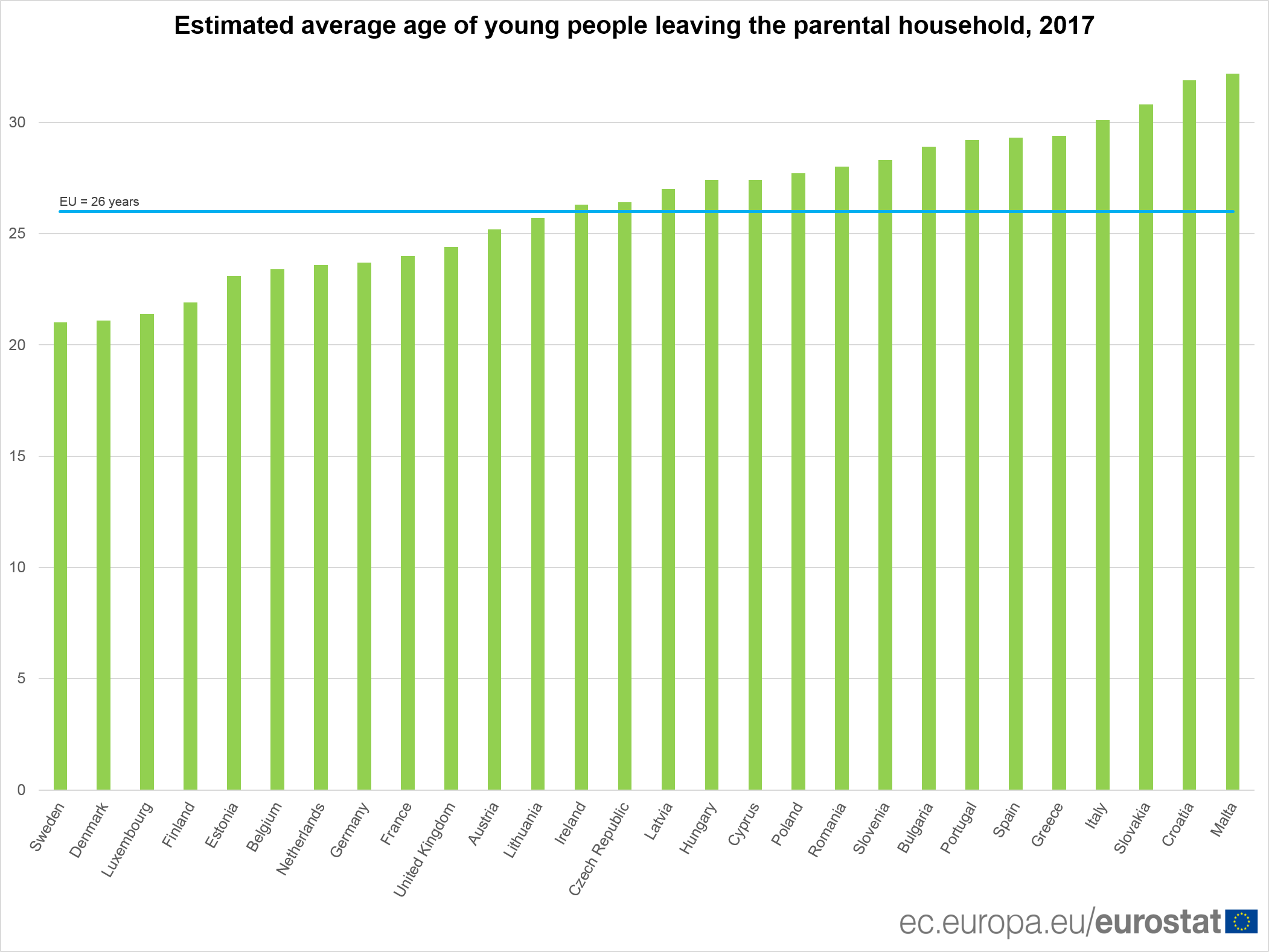In the European Union (EU), over one young adult out of four (28.5%) aged 25 to 34 were still living with their parents in 2016. Across the EU, this share ranged from less than 10% in the Nordic Member States – Denmark (3.8%), Finland (4.3%) and Sweden (6.0%) – to about half in Croatia (58.7%), Slovakia (55.5%), Greece (55.0%), Malta (51.5%) and Italy (48.9%).
Overall, it is estimated that young people leave the parental household at the age of 26 years on average in the EU. But significant discrepancies can be observed between Member States.
In the Nordic Member States and Luxembourg, they flee in their early 20s…
In 2017 in the EU, young people left home earliest in the three Nordic Member States – Sweden (21.0 years), Denmark (21.1 years) and Finland (21.9 years) – as well as in Luxembourg (21.4 years). They were followed by those in Estonia (23.1 years), Belgium (23.4 years), the Netherlands (23.6 years), Germany (23.7), France (24.0 years) and the United Kingdom (24.4 years).
… But wait until their 30s in Malta, Croatia, Malta, Slovakia and Italy
At the opposite end of the scale, young adults in Malta and Croatia remained the longest in the parental household. They left home at an average age of 32.2 and 31.9 respectively. Young adults in Slovakia (30.8 years), Italy (30.1 years), Greece (29.4 years), Spain (29.3 years), Portugal (29.2 years) and Bulgaria (28.9 years) also left the parental home at a later stage.
The source dataset can be found here.
It should also be noted that in every EU Member State, young women tended to leave the parental household earlier than men. The highest differences between the genders were registered in Romania (25.6 years for women, compared with 30.3 for men), Bulgaria (26.5 vs. 31.1), Croatia (30.4 vs. 33.4), Slovakia (29.4 vs. 32.2), Hungary (26.0 vs. 28.8), Greece (28.0 vs. 30.7) and the Czech Republic (25.1 vs. 27.7).
This news item marks the international day of families (15 May).
For more information please contact us: estat-user-support@ec.europa.eu.


